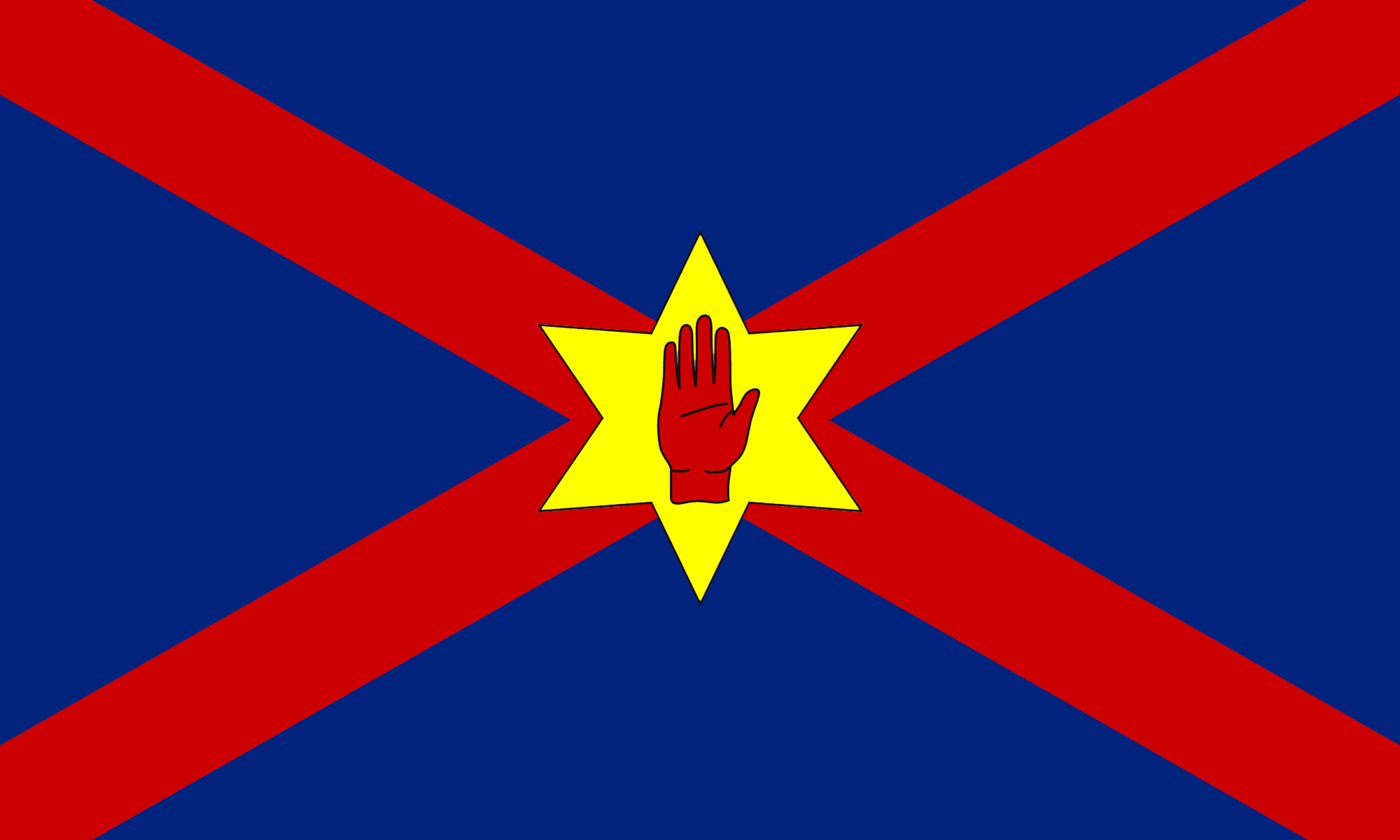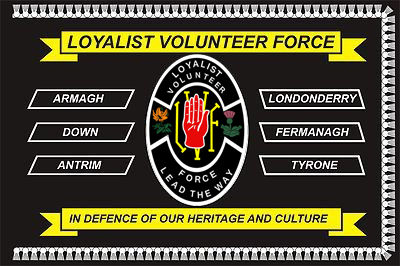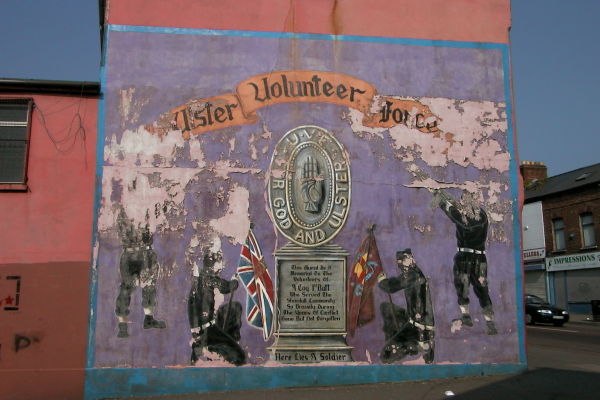|
1991 Cappagh Killings
The 1991 Cappagh killings was a gun attack by the loyalist Ulster Volunteer Force (UVF) on 3 March 1991 in the village of Cappagh, County Tyrone, Northern Ireland. A unit of the UVF's Mid-Ulster Brigade drove to the staunchly republican village and shot dead three Provisional IRA members and a Catholic civilian at Boyle's Bar. Although nobody was ever charged in connection with the killings, it was widely believed by nationalists and much of the press that the attack had been planned and led by Billy Wright, the leader of the Mid-Ulster Brigade's Portadown unit. Wright himself took credit for this and boasted to ''The'' ''Guardian'' newspaper, "I would look back and say Cappagh was probably our best", though some sources are skeptical about his claim. There were allegations of collusion between the UVF and the Ulster Defence Regiment (UDR) in the shootings. The shootings On the evening of Sunday 3 March 1991, a unit of the Ulster Volunteer Force's Mid-Ulster Brigade drove ... [...More Info...] [...Related Items...] OR: [Wikipedia] [Google] [Baidu] |
The Troubles
The Troubles ( ga, Na Trioblóidí) were an ethno-nationalist conflict in Northern Ireland that lasted about 30 years from the late 1960s to 1998. Also known internationally as the Northern Ireland conflict, it is sometimes described as an "irregular war" or "Low-intensity conflict, low-level war". The conflict began in the late 1960s and is usually deemed to have ended with the Good Friday Agreement of 1998. Although the Troubles mostly took place in Northern Ireland, at times violence spilled over into parts of the Republic of Ireland, England and mainland Europe. The conflict was primarily political and nationalistic, fuelled by historical events. It also had an Ethnic group, ethnic or sectarian dimension but despite use of the terms 'Protestant' and 'Catholic' to refer to the two sides, it was not a Religious war, religious conflict. A key issue was the Partition of Ireland, status of Northern Ireland. Unionism in Ireland, Unionists and Ulster loyalism, loyalists, who for ... [...More Info...] [...Related Items...] OR: [Wikipedia] [Google] [Baidu] |
Pomeroy, County Tyrone
Pomeroy is a small village and civil parish in County Tyrone, Northern Ireland. It is in the townland of Cavanakeeran, about from Cookstown, from Dungannon and from Omagh. The 2011 Census recorded a population of 788 people. This article contains quotations from this source, which is available under th Open Government Licence v3.0. © Crown copyright. Pomeroy is atop a large hill that dominates the surrounding countryside. From the Cookstown end, the road through the village gradually climbs a gradient up to a village square, The Diamond. The village is surrounded by the Pomeroy Hills. The surrounding countryside is a mixture of moorland and bog land. Stone age and Bronze Age cairns dot the landscape. Pomeroy is the closest settlement to the geographical centre of Ulster. History At the end of the 17th century there was no village in this area, just an extensive forest. In the plantation of Ulster James I and VI granted eight townlands to Sir William Parsons, Surveyor Gen ... [...More Info...] [...Related Items...] OR: [Wikipedia] [Google] [Baidu] |
Ulster Loyalist Central Co-ordinating Committee
The Ulster Loyalist Central Co-ordinating Committee (ULCCC) was set up in 1974 in Belfast, Northern Ireland in the aftermath of the Ulster Workers Council Strike, to facilitate meetings and policy coordination between the Ulster Workers Council, loyalist paramilitary groups, and the political representatives of Ulster loyalism. Original version Seen as an important link between grassroots loyalism and more mainstream unionist politics, the ULCCC was chaired by Glenn Barr and met in the Belfast offices of the Vanguard Progressive Unionist Party on a weekly basis. Replacing the earlier Ulster Army Council, it brought together representatives of the Ulster Defence Association (UDA), Ulster Volunteer Force (UVF), Red Hand Commando, Vanguard Service Corps/Ulster Volunteer Service Corps, Down Orange Welfare (DOW), Loyalist Association of Workers and Orange Volunteers. Barr was soon replaced as chairman by John McKeague and the ULCCC took on the wider aim of preparing for the establishme ... [...More Info...] [...Related Items...] OR: [Wikipedia] [Google] [Baidu] |
Ulster Independence Movement
The Ulster Independence Movement was an Ulster nationalist political party founded (as the Ulster Independence Committee) on 17 November 1988. The group emerged from the Ulster Clubs, after a series of 15 public meetings across Northern Ireland. Led by Hugh Ross, a Presbyterian minister from Dungannon, County Tyrone, the UIC sought to end what it saw as the tyranny of rule from London (and potentially Dublin) and instead set up an independent Northern Ireland. Early development The UIC initially had a network of 11 branches and first entered the political arena in 1990 when Ross stood in a by-election for the Upper Bann constituency following the death of sitting MP Harold McCusker. Finishing as fourth out of eleven candidates with 1534 votes (4.3%) (and ahead of the Alliance Party of Northern Ireland candidate), the result indicated to the UIC that there was potential for an Ulster nationalist party. The Committee reconstituted itself in 1994 as a full political party (lar ... [...More Info...] [...Related Items...] OR: [Wikipedia] [Google] [Baidu] |
Irish National Liberation Army
The Irish National Liberation Army (INLA, ga, Arm Saoirse Náisiúnta na hÉireann) is an Irish republican socialist paramilitary group formed on 10 December 1974, during the 30-year period of conflict known as "the Troubles". The group seeks to remove Northern Ireland from the United Kingdom and create a socialist republic encompassing all of Ireland. With membership estimated at 80–100 at their peak, it is the paramilitary wing of the Irish Republican Socialist Party (IRSP). The INLA was founded by former members of the Official Irish Republican Army who opposed that group's ceasefire. It was initially known as the "People's Liberation Army" or "People's Republican Army". The INLA waged a paramilitary campaign against the British Army and Royal Ulster Constabulary (RUC) in Northern Ireland. It was also active to a lesser extent in the Republic of Ireland, Great Britain and mainland Europe. High-profile attacks carried out by the INLA include the Droppin Well bombing, ... [...More Info...] [...Related Items...] OR: [Wikipedia] [Google] [Baidu] |
Maze Prison
Her Majesty's Prison Maze (previously Long Kesh Detention Centre, and known colloquially as The Maze or H-Blocks) was a prison in Northern Ireland that was used to house alleged paramilitary prisoners during the Troubles from August 1971 to September 2000. It was situated at the former Royal Air Force station of Long Kesh, on the outskirts of Lisburn. This was in the townland of Maze, about southwest of Belfast. The prison and its inmates were involved in such events as the 1981 hunger strike. The prison was closed in 2000 and demolition began on 30 October 2006, but on 18 April 2013 it was announced by the Northern Ireland Executive that the remaining buildings would be redeveloped into a peace centre. Background Following the introduction of internment in 1971, Operation Demetrius was implemented by the Royal Ulster Constabulary (RUC) and British Army with raids for 452 suspects on 9 August 1971. The RUC and army arrested 342 Irish nationalists, but key Provisional Irish R ... [...More Info...] [...Related Items...] OR: [Wikipedia] [Google] [Baidu] |
Loyalist Volunteer Force
The Loyalist Volunteer Force (LVF) is a small Ulster loyalist paramilitary group in Northern Ireland. It was formed by Billy Wright in 1996 when he and his unit split from the Ulster Volunteer Force (UVF) after breaking its ceasefire. Most of its members came from the UVF's Mid-Ulster Brigade, which Wright had commanded. In a two-year period from August 1996, the LVF waged a paramilitary campaign in opposition to Irish republicanism and the Northern Ireland peace process. During this time it killed at least 14 people in gun and bomb attacks, almost all of them Catholic civilians killed at random. The LVF called off its campaign in August 1998 and decommissioned some of its weapons, but in the early 2000s a loyalist feud led to several killings. Since then, the LVF has been largely inactive, but its members are believed to have been involved in rioting and organized crime. In 2015, the security forces stated that the LVF "exists only as a criminal group" in Mid-Ulster and Antrim ... [...More Info...] [...Related Items...] OR: [Wikipedia] [Google] [Baidu] |
Robin Jackson
Robert John Jackson (27 September 1948 – 30 May 1998), also known as The Jackal, was a Northern Irish loyalist paramilitary and part-time soldier. He was a senior officer in the Ulster Volunteer Force (UVF) during the period of violent ethno-nationalist conflict in Northern Ireland known as the Troubles. Jackson commanded the UVF's Mid-Ulster Brigade from 1975 to the early 1990s, when Billy Wright took over as leader. From his home in the small village of Donaghcloney, County Down, a few miles south-east of Lurgan, Jackson is alleged to have organised and committed a series of killings, mainly against Catholic civilians, although he was never convicted in connection with any killing and never served any lengthy prison terms. At least 50 killings in Northern Ireland have been attributed to him, according to Stephen Howe (in the ''New Statesman'' magazine) and David McKittrick (in his book ''Lost Lives''). An article by Paul Foot in ''Private Eye'' suggested that Jac ... [...More Info...] [...Related Items...] OR: [Wikipedia] [Google] [Baidu] |
The Irish Times
''The Irish Times'' is an Irish daily broadsheet newspaper and online digital publication. It launched on 29 March 1859. The editor is Ruadhán Mac Cormaic. It is published every day except Sundays. ''The Irish Times'' is considered a newspaper of record for Ireland. Though formed as a Protestant nationalist paper, within two decades and under new owners it had become the voice of British unionism in Ireland. It is no longer a pro unionist paper; it presents itself politically as "liberal and progressive", as well as being centre-right on economic issues. The editorship of the newspaper from 1859 until 1986 was controlled by the Anglo-Irish Protestant minority, only gaining its first nominal Irish Catholic editor 127 years into its existence. The paper's most prominent columnists include writer and arts commentator Fintan O'Toole and satirist Miriam Lord. The late Taoiseach Garret FitzGerald was once a columnist. Senior international figures, including Tony Blair and Bill Cl ... [...More Info...] [...Related Items...] OR: [Wikipedia] [Google] [Baidu] |
Police Service Of Northern Ireland
The Police Service of Northern Ireland (PSNI; ga, Seirbhís Póilíneachta Thuaisceart Éireann; Ulster Scots dialects, Ulster-Scots: ') is the police, police force that serves Northern Ireland. It is the successor to the Royal Ulster Constabulary (RUC) after it was reformed and renamed in 2001 on the recommendation of the Patten Report. Although the majority of PSNI officers are Ulster Protestants, this dominance is not as pronounced as it was in the RUC because of Affirmative action, positive action policies. The RUC was a militarised police force and played a key role in policing the violent conflict known as the Troubles. As part of the Good Friday Agreement, there was an agreement to introduce a new police service initially based on the body of constables of the RUC. As part of the reform, an Independent Commission on Policing for Northern Ireland (the Patten Commission) was set up, and the RUC was replaced by the PSNI on 4 November 2001. The Police (Northern Ireland) Act ... [...More Info...] [...Related Items...] OR: [Wikipedia] [Google] [Baidu] |
Historical Enquiries Team
The Historical Enquiries Team was a unit of the Police Service of Northern Ireland set up in September 2005 to investigate the 3,269 unsolved murders committed during the Troubles, specifically between 1968 and 1998. It was wound up in September 2014, when the PSNI restructured following budget cuts. Goals The team had three objectives: * To work with families of those who had been killed. * To ensure that cases were conducted to modern policing standards, and * To carry out the work in such a way that the wider community had confidence in the outcomes. Working with families was at the heart of the HET objectives, with a family liaison process in place, and the HET undertaking to provide each affected family with a copy of the relevant report. It was headed by Commander David Cox, formerly of the London Metropolitan Police, and consisted of a team of 100 investigators and supporting staff, and a budget of £30 million. HET was split into two distinct teams: Review and Investi ... [...More Info...] [...Related Items...] OR: [Wikipedia] [Google] [Baidu] |



.jpg)


